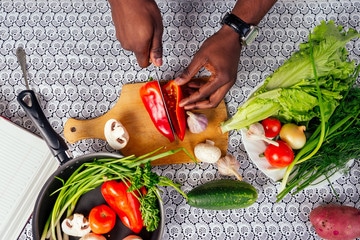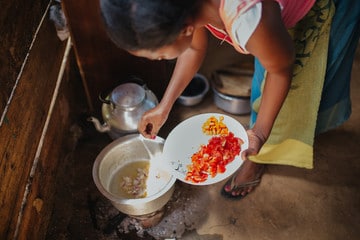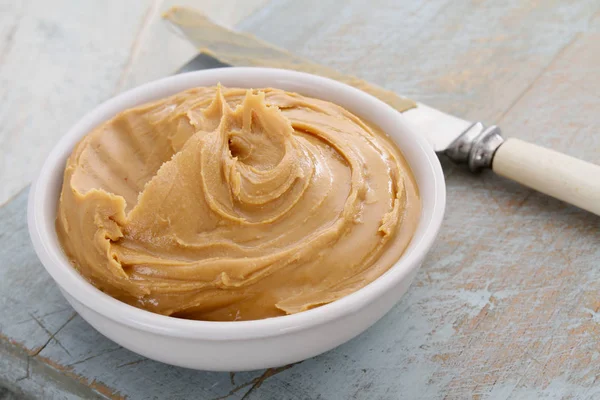Food safety simply refers to the practices adopted to ensure that foods are void of bacteria, fungi, parasites, viruses and other microorganisms that may cause food-borne illnesses.
Although this terminology is quite popular and known by virtually everyone, but only a few people understand its real meaning, reasons why they must ensure it, and how to go about it. Part of the reasons to ensure food safety is to shield you and your family against various illnesses that are associated with eating contaminated foods. These are diseases like stomach flu, cancer and even neurological disorders.
Quick facts about food safety
According to the World Health Organization (WHO):
- Over 1.7 million people die yearly as a result of diarrheal diseases linked with contaminated food and water.
- Gastroenteritis, one of the food-borne illnesses is among the leading causes of child deaths in the world.
- More than 200 million children are infected with diarrheal diseases, and about 100,000 deaths are recorded annually.
- There are more than 200 diseases that can be spread through food
- 1 in 10 persons get ill annually as a result of eating contaminated food, and over 420,000 deaths are recorded every year.
- Contaminated food can further result in long-term health problems, including cancer and neurological disorders.
- Food contamination can occur in various food stages, ranging from harvesting, processing, storage, transport, distribution, and cooking. [1]
7 Healthy Ways to Ensure Food Safety

1. Wash your hands and surfaces promptly before and after handling food
There are several reasons you should wash your hands thoroughly before handling any food at all. Part of it is that washing your hands can help reduce the number of bacteria and other microorganisms that triggers food contamination and spoilage. It can also shield you from transferring pathogens from your hands to the food, and thus reducing your risk of food contamination.
For increased food safety, it is best you wash both hands in each handling step. Take for example, if you intend cooking rice and vegetables, wash your hands before and after you rinse the rice. Wash your hand again before you begin to cut the veggies, and after that wash it once more before cutting and mixing it.
By so doing, there are lesser occurrences of cross-contamination (the transfer of microorganisms from a food item or handling phase to the other), and it might also help reduce the occurrence of food contamination, food spoilage as well as food poisoning.
Having said that it is equally important to wash all the surfaces that your foods are likely to come in contact with. This could be your knives, trays, plates, chopping boards, etc. – wash them before touching your food and immediately after using them.
Develop the habit of regularly washing your hands at every handling step of your cooking. It will go a long way.
2. Wash foods properly
Yes, washing your hands before and after handling food is important, but this is more important – wash your foods thoroughly before cooking.
Right before you touch that uncooked food items, take enough time to wash them properly so as to eliminate any source that may likely cause contamination. You can wash the food using salt solution or vinegar solution, ideally for foods that do not require much cooking such as fruits and vegetables.
What makes this important is the fact that most foods contain bacteria, germs, toxins, the remnant of agrochemicals or other harmful substances which may trigger adverse effects on the stomach and the overall health.
That being said, it is equally important to let you know that washing fruits and vegetables with detergent could be very dangerous. The chemical in the detergent of ingested might result in severe health issues. So, be sure to shun this habit.
3. Arrange foods properly in the fridge
You may decide to store your foods in a fridge for several reasons, but never make the mistake of arranging them in no order. If situation warrants that you put your food inside the fridge, make sure you arrange them in a proper way so that ready-to-eat foods will not get toxified by drippings from raw foods.
Another thing to note is that the refrigerator is not capable of eliminating microorganisms from food; they can only reduce or lower their activity. Some microorganisms might even grow under refrigeration temperatures, which makes it a necessity to arrange foods in accordance.
To start with, if you want your food to be extremely resistant to spoilage caused by temperature fluctuations, all you need to do is to store such foods at the fridge door (this is the warmest part of fridges). Foods such as juices, mustard, butter and water are best placed in this region.
On the other hand, the top and middle shelves are the second coldest part of fridges. This is the best place to store your remnants, ready-to-eat foods, such as cakes, pies, sandwiches, eggs and other related foods.
Having said that, the coldest part in any fridge is the bottom region, which makes it an ideal spot for storing fresh meat, fresh fish, and other fresh foods. This is mainly because foods like these are more prone to microbial contamination.
Talking about the crisper drawers at the bottom of fridges; they have similar temperature with the refrigerator door (very warm), and thus making the region an ideal place for fruits, vegetables and other foods that can be destroyed by lower temperatures.
To further ensure higher food safety, it is recommended you first put your foods in tightly closed containers just before you keep them in the fridge.

4. Cook foods adequately
When foods are not cooked evenly, they tend to still have some microorganisms, which may further trigger serious health conditions when ingested. But when you cook your food adequately, the heat produced during that process will help kill the vast majority of the harmful microorganisms, and thus shielding you against severe illnesses.
However, it is equally worthy to note that foods should be cooked adequately, not overly. When you overcook foods, it may lose some essential nutrients and eventually contribute nothing good to your health when you eat it. Multiple studies also reveal that foods cooked at high temperatures for a longer period may form acrylamide, a compound proven to be responsible for certain cancer types.
Always remember that the longer you cook a food, the greater the nutrient loss. Cook adequately not overly!
5. Wash your kitchen utensils regularly
The tools and surfaces used in the kitchen may become contaminated when it comes in contact with other products, such as raw meat and agricultural produce. Your food may also become contaminated when you use infected utensils like knife, chopping board, cleaning cloths and the likes. That’s not all; a cooked food may again be contaminated through the drippings from raw foods with pathogens and microorganisms.
The whole essence of saying this is to help you understand why your kitchen utensils must be washed regularly. Wash these utensils with quality soap before using them at all and again wash them immediately after use. Additionally, you should always wash your surfaces with hot, soapy water.
By so doing, you’re lessening your chances of developing food-related diseases.
6. Use safe water and raw materials
The water and raw materials used in the kitchen can be easily contaminated with harmful microorganisms and chemicals, and the funniest thing is that you might not even be aware that such a thing had taken place. This is why you should always be very careful when it comes to the water and raw materials you use in preparing your food.
If you doubt the serenity of the water, it is best you treat the water by choosing either to boil it or make use of water filters. You should also check for bruises or moulds on your raw fruits and vegetables and remove the affected part to the barest minimum (if found)
Another thing to look for before using any raw ingredient or food in your cooking is the expiry date. Once the expiration date has been elapsed, it is safe to throw them away and get a new one than exposing yourself and the entire family to the inherent risks and consequences.
7. Declare total war on pests
Pests usually stay around places where they can easily get foods and feed themselves. The unfortunate thing about these wonderful creatures is that they can contaminate your foods if allowed to feed upon your foods. For instance, common household pests like cockroaches, rodents and flies are capable of spreading microorganisms that may expose you to food-borne diseases. Ever heard of Lassa fever? That’s one of the serious diseases spread by rodents.
To ensure food safety at home, it is imperative you devise every means and strategies that will restrict these rodents from gaining access to your foods. Part of the best ways to reduce pests at home includes – Storing foods in airtight containers, Using of pest control products like sprays and sticky paper, Closing off places where pests can enter and hide, Removal of sources of food, water and shelter to pests.
Other ways to ensure food safety:
- Establish adequate procedures for waste removal on a regular basis
- Tie your hair whenever you are handling food
- Keep your fingernails short or wear clean disposable gloves whenever you are cooking or handling food
- Wash your hands thoroughly after sneezing or touching any dirty items
- Maintain designated cleaning cloths and pads for cleaning different areas in the kitchen
- Boil your kitchen sponges at least once a week to rid them of germs
- Cover any wounds and cuts on you whenever you are handling food
- If you are not eating your cooked food soonest, store it inside the fridge within the first two hours
- Maintain distinct cutting boards and utensils for vegetables and for raw poultry products like meat and fish
- Place a quality fire extinguisher in your kitchen and other sensitive areas of your home
- Empty all garbage cans immediately you are done cooking
Bottom Line
Enough of the diseases and deaths caused as a result of food contamination. Food safety is a joint responsibility of everyone, including the governments, industry, producers, restaurant owners, local communities, and consumers.
ALSO READ:
- Is Reusing Cooking Oil Bad For You?
- 10 Important Cooking Gas Safety Tips You Must Know
- 5 Healthy Nigerian Dinner Ideas and Recipes
- 5 Healthy Nigerian Breakfast Ideas and Recipes
Collins Nwokolo is a human physiologist, writer and health enthusiast. He loves writing helpful articles on health and fitness, which he enjoys sharing with everyone.







